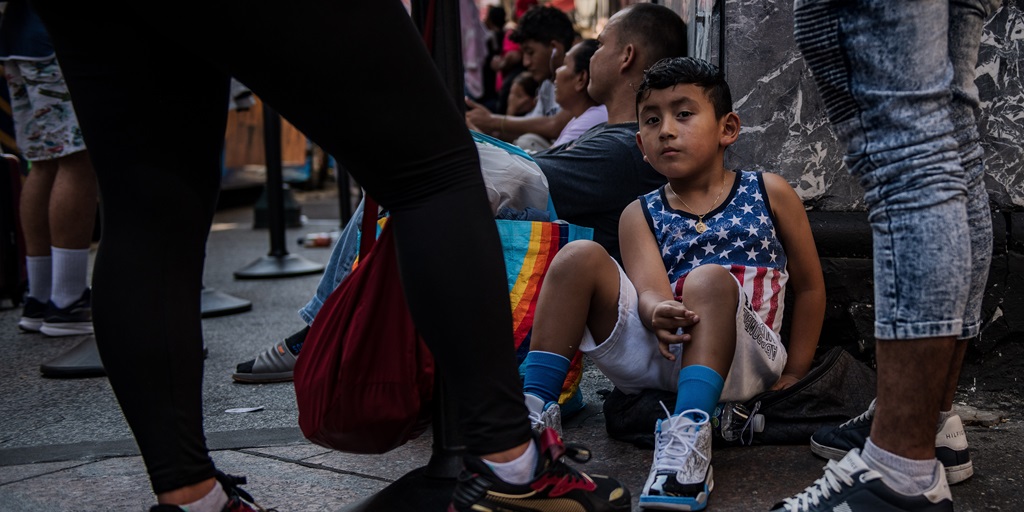Update on 9/13/24:
On August 23rd, Harris County District Judge Ravi K. Sandill denied Attorney General Ken Paxton’s request to halt FIEL’s operations and revoke its nonprofit status, effectively stopping the case from moving forward.
FIEL Houston is being represented by MALDEF (Mexican American Legal Defense and Educational Fund) and Austin-based attorney Carlos R. Soltero, a MALDEF board member. They argued that Paxton lacked the authority to file a lawsuit concerning FIEL Houston’s federal tax-exempt status and claimed his actions were retaliatory, targeting FIEL for its advocacy on behalf of immigrants.
This marks the third time in two months that a judge has blocked Paxton’s efforts to shut down nonprofit organizations based on disagreements with their mission or content. The Attorney General’s office has yet to comment on the judge’s ruling.
Earlier this summer, a state judge issued a strong rebuke to Texas Attorney General Ken Paxton’s attempt to shut down the faith-based Annunciation House, labeling his actions as “outrageous and intolerable.”
Judge Francisco X. Dominguez’s July 2 ruling came as a response to Paxton’s attempts to compel shelters along the Texas-Mexico border to hand over sensitive records detailing the identities of the migrants and refugees they serve, that then escalated to an effort aimed at shutting down the shelters altogether. This ruling is a significant blow to Paxton’s broader efforts to target organizations offering aid to vulnerable populations.
Annunciation House, a well-established nonprofit that has been a cornerstone of the El Paso community since 1978, operates a network of shelters dedicated to providing refuge to those fleeing violence and persecution. These shelters provide vulnerable migrants with food, shelter, and information on how to complete legal documents to seek asylum in the United States. Rooted in the Catholic faith and staffed entirely by volunteers, the organization has offered “hospitality to hundreds of thousands of refugees for over forty-six years.” It is recognized by the Catholic Church and listed in the National Catholic Directory, underscoring its long-standing commitment to humanitarian work.
The legal conflict began when Paxton arrived at Annunciation House on February 7, 2024, demanding a vast array of confidential records to be turned over to the Office of the Attorney General within 24 hours. In response, Annunciation House filed a lawsuit, seeking protection against what they viewed as an unlawful intrusion. Paxton, in turn, escalated the situation by filing a countersuit, accusing the shelter of smuggling and calling for its closure.
This aggressive stance not only underscored the growing tension in Texas between state authorities and organizations that provide essential support to migrants but also shocked many, including Pope Francis, who was taken aback by Paxton’s attack on a religious nonprofit.
Annunciation House has strongly denied any involvement in illegal activities, with their attorney stating, “There is no legal basis for closing a nonprofit that provides social services to refugees. Period.”
In May, Paxton had gone so far as to claim that the organization was designed to “facilitate illegal border crossings and to conceal illegally present aliens from law enforcement,” branding it a “criminal enterprise.”
Judge Dominguez’s July 2 ruling emphasized that Paxton’s demands were a violation of the Fourth Amendment, which protects against unreasonable searches and seizures. This decision was a clear repudiation of Paxton’s argument that Annunciation House was involved in illegal activities.
This attack on Annunciation House is not an isolated incident but part of a broader strategy by Texas Governor Greg Abbott to demonize vulnerable migrants seeking asylum. Abbott’s directive in late 2022, which instructed Paxton to investigate non-governmental organizations (NGOs) allegedly involved in illegal immigrant transportation, reflects a continued use of inflammatory rhetoric for political gain.
Earlier this summer, Attorney General Ken Paxton sought to compel Catholic Charities of the Rio Grande Valley to testify under the Texas Business Organizations Code, accusing the nonprofit of violating immigration laws and involvement in human smuggling. Catholic Charities argued that Paxton’s actions were an overreach without evidence and that he was infringing on the organization’s religious freedoms.
District Court Judge J.R. “Bobby” Flores ruled in favor of Catholic Charities and denied the state’s petition. The inquiry focused on the Humanitarian Respite Center in downtown McAllen, Texas, which has been providing food, shelter, and other essentials to migrants legally released by the Department of Homeland Security. Contrary to Paxton’s claims, the center, which has been operating for a decade, assists migrants who have undergone federal vetting, often with federal immigration officers transporting them to the facility.
The saga continued, on July 15, when Paxton announced his appeal of the dismissal of his lawsuit that would have closed Annunciation House and touted his plan to take the case to the Supreme Court of Texas.
While Paxton’s appeal was anticipated, it is unclear whether the Texas Supreme Court will take up the case.
Meanwhile, Paxton has redirected his efforts toward a different nonprofit, Familias Inmigrantes y Estudiantes en la Lucha (FIEL), which advocates for immigrant youth, their families, access to higher education regardless of immigration status, and justice for the community. A recent lawsuit filed by Paxton claims that FIEL is violating federal regulations by engaging in political advocacy and opposing state immigration laws. It seeks an immediate order dissolving the organization entirely.
FIEL contends that the lawsuit is retaliatory and another instance of Paxton using legal actions to target nonprofits whose missions he opposes. If Paxton is successful in court, the precedent could send a chill through every nonprofit in the state.
Texas business leaders are staying out of the politically motivated fray and continue to call for meaningful immigration solutions from Congress that strengthen U.S.-Mexico border security without sacrificing compassion.
FILED UNDER: Texas


